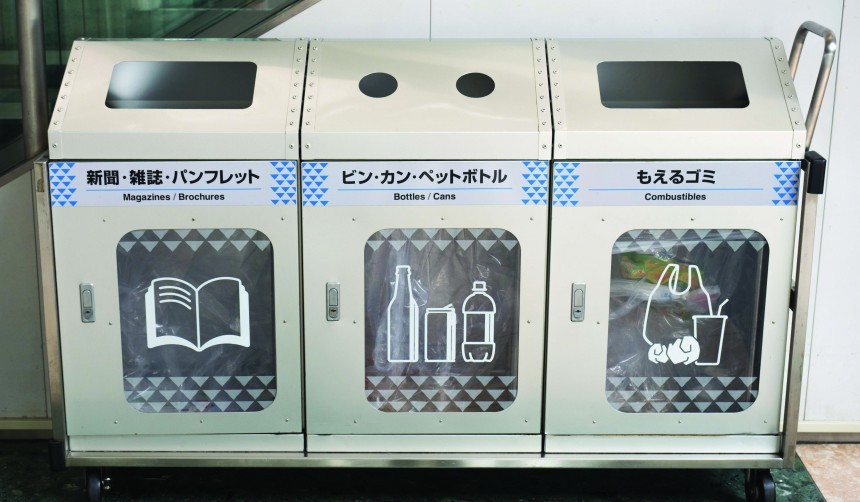
October 7, 2017
Making a Mess of Cleaning Up
The challenge of living in Japan isn’t how to get things, but how to get rid of them.
“I Love Trash” is the trademark line of the usually misanthropic Oscar the Grouch on Sesame Street. By comparison, to the fresh-off-the-plane foreigner, Japanese garbage becomes his or her worst nightmare.
When introduced to the enigmatic trash-separation laws of your new home, the first thing you begin to question as you look around is, “what is burnable?” The idea of separating trash by this metric is quite strange to many Westerners, to whom all garbage goes into the same can (or somewhere nearby) and then goes…somewhere else. Though many will make a supreme effort (at first) to properly sort and dispose of things, the answer to the previous question quickly becomes “why, everything is burnable!” Those pesky old light bulbs, leaky batteries, even one-yen coins end up getting chucked in the burnable bags. The guilt only comes when it’s time to dispose of the massive amount of bags you’ve built up, since you have been forgetting on what day which type of trash goes out, nearly every week. In our mind’s eye, we dread one thing in particular: being seen by our entire neighborhood guiltily taking back trash from the pile, because we put it out on the wrong day and didn’t want to just leave it there.
We’ve been inventive with how to get rid of our stuff – our Japanese neighbors know. Big things (bedding, furniture, clothes) get hacked at with a knife and thrown away in pieces over the course of a month or longer. Futons? If you can’t hand it off to a clueless newbie, you wait until nightfall and go on a joyride, looking for a dumpster big enough to fit it in. PET bottles? No problem, since, as we all know, PET stands for “Please enter (into) trash.”
A co-worker once assured me not to worry about it so much, since “it all ends up getting burned anyway.” And luckily for us we never hear of a garbage processing plant exploding because of a hidden, half-full bottle of olive oil or hairspray. We are expats, not sadists, after all.
However, despite our best efforts to be discreet, the truth is, we’ve been found out. You see, Japanese people have long been paranoid about their, and others’, garbage. If you can believe it, the system used to be even more rigid. A Japanese friend recalled how once, in her first apartment many years ago, there was a separate spot in the dumpster for each individual apartment to put their trash, which was inspected by the landlord regularly. When a piece of trash in her box was something it shouldn’t be, she’d get an earful from the landlord, including the especially damning phrase, “Are you really Japanese?” Out in the countryside, it isn’t unheard-of to have glass organized by color and shape. Mess up, and expect an unwelcome gift on your doorstep the next day.
If it’s a headache for Japanese people, it’s especially bad for us. We don’t even get the benefit of the doubt. Any story about a foreigner’s Japanese apartment search is rife with anecdotes of all the apartment’s they didn’t get. This apparently all comes down to the fact that us gaijin simply can’t get used to the Japanese lifestyle, and when pressed for an example, garbage is usually the reason given.
There seems to be, at least superficially, an effort being made to solve the problem. Every time I get my yearly city guide in the mail, I can see more and more English relating to trash disposal. But the road to rubbish absolution is fraught with embarrassment. Asking a neighbor if you’ve chucked your leavings correctly is like letting a stranger peer in your underwear drawer, and them getting angry if your unmentionables aren’t up to par.
The more Japanese I learn, and the more I get comfortable with my own situation, I may (if I’m lucky) one day successfully tie up a cleanly cut stack of cardboard. As I watch the garbage man come and haphazardly toss it into the truck, I’ll shed a little tear on a job well done.
The views expressed in “The Last Word” are those of the author and do not necessarily reflect the position or opinion of Japan Partnership Co. Ltd. or its partners and sponsors.







